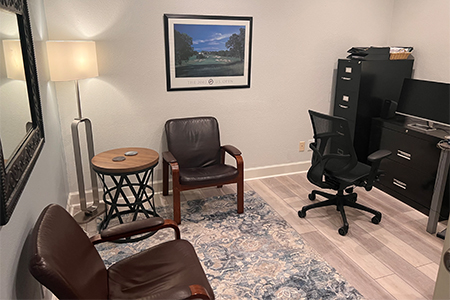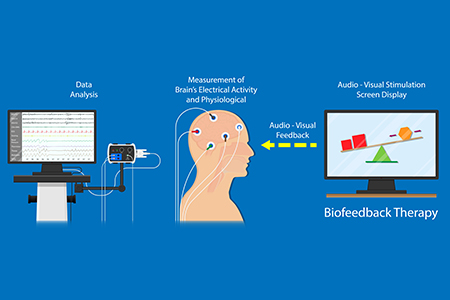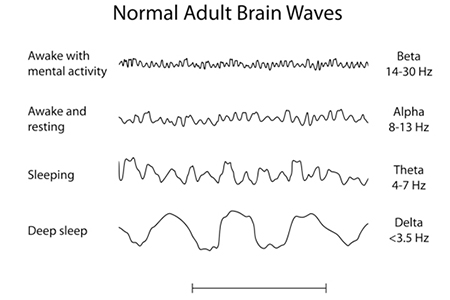Where is your office located?
My office is located at:
3418 Mercer Street
Suite 201
Houston, TX 77027

I also have a separate Neurofeedback office on the second floor at 3418 Mercer Street.


When are appointments available?
I generally offer appointments on Monday through Friday between 9 am and 5 pm. I offer evening appointments on Monday nights (5 pm, 6 pm, & 7 pm).
Do you offer in-person or telehealth?
Both! I am glad to visit with you in my office at 3418 Mercer St. (assuming it is safe to do so with the latest COVID guidance).
I also offer telehealth visits you can conveniently do from anywhere in Texas where you have privacy and a good Internet connection.
How long are sessions?
The first session is 85 minutes, and the fee is $250. Follow-up sessions are $200 for 55 minutes.
Do you take insurance?
I have moved away from taking insurance for several reasons. Primarily, not taking insurance gives us the freedom to individualize our work together. This means increased time spent on treatment planning and efforts to optimize our work. Working independently also allows the integration of modalities such as neurofeedback and biofeedback, which have been very helpful to my clients.
I encourage you to check your out-of-network benefits for your insurance provider by calling customer service. There is typically a deductible that needs to be met, and then they will often cover a percentage of your costs. I will provide a superbill at the end of each month (a summary of the diagnosis, charges, and medical procedures) that you can submit to your insurance for out-of-network reimbursement. I would be happy to address any questions about the submissions of superbills with you.
What are some of the important questions to answer when using Out-of-Network (OON) benefits to reimburse mental health expenses?
Services may be covered by your health insurance or employee benefit plan if you have out-of-network benefits. Please check your coverage carefully by asking the following questions:
- Do I have mental health insurance benefits?
- Does my plan reimburse for out of network providers?
- What is my deductible and has it been met?
- How many sessions per year does my health insurance cover?
- What is the coverage amount per therapy session?
- Is approval required from my primary care physician?
- Is pre-authorization required for psychological assessments, QEEG assessment or psychophysiological treatments (biofeedback or neurofeedback)?
How do I make an appointment?
The first step to working together is to call (832) 831-0178 or email info@intention-focus.com. We will schedule an 90-minute intake session.
Typically, we will agree on follow-up appointments at the end of the meeting. Ideally, we can find a consistent meeting date and time and will schedule weekly at first. My experience is that dedicating adequate time and effort at the start of our work together helps us to gain momentum and clarity.
No Surprise Act / Good Faith Estimate
You have the right to receive a “Good Faith Estimate” explaining how much your medical care will cost.
Under the law, health care providers need to give patients who don’t have insurance or who are not using insurance an estimate of the bill for medical items and services.
- You have the right to receive a Good Faith Estimate for the total expected cost of any non-emergency items or services. This includes related costs like medical tests, prescription drugs, equipment, and hospital fees.
- Make sure your health care provider gives you a Good Faith Estimate in writing at least 1 business day before your medical service or item. You can also ask your health care provider, and any other provider you choose, for a Good Faith Estimate before you schedule an item or service.
- If you receive a bill that is at least $400 more than your Good Faith Estimate, you can dispute the bill.
- Make sure to save a copy or picture of your Good Faith Estimate
- For questions or more information about your right to a Good Faith Estimate, visit cms.gov/nosurprises
What is your cancellation policy?
Sessions canceled within 48 hours of our meeting are charged the full session fee. Our therapy session is time I set aside especially for you and is a precious resource. However, we can schedule sessions for another time during the same week (assuming mutual workability).
Finally, I’m reasonable, and my goal is to serve you well. If life happens (and life happens to all of us occasionally), please reach out to me at your earliest convenience to see what we can work out for another solution. My goal is that you get the most out of your decision to work with me, and my preference is to take our next step toward creating a rich and meaningful life together.
What age ranges do you work with?
In psychotherapy, I primarily work with adults between 18 and 65. I offer QEEG brain mapping, Neurofeedback, and executive-function coaching for children, adolescents, and adults between 5 – 65.
Do you see couples?
What happens in a typical therapy session?
Sessions often start with a mindfulness practice, and then we review our agenda for the session together. This agenda may include reviewing experiments discussed in the prior session. Often, topics from the previous week warrant time to discuss.
Throughout our work together, we are focused on improving your ability to be present, willing, and act on your values. Experiential exercises such as guided imagery, reflection practices, and emotional identification are also used in session.
Do your clients receive assignments to work on between sessions?
I like to refer to “assignments” as experiments.
There are some treatment protocols that require more intensive work outside of our meetings (Prolonged Exposure, CBT-Insomnia). In general, I recommend developing a mindfulness practice as something that has been a productive adjunct to our therapy work together.
What modalities do you use in your client work?
Therapy – Acceptance and Commitment Therapy (ACT)
The guiding theory for my client work is Acceptance and Commitment Therapy (or ACT as in action). In ACT, our work aims to increase your psychological flexibility. We do this as you learn how to create room and become willing to experience difficult thoughts and feelings, learn how to be more present and engaged in your life, and identify YOUR values and take committed action toward them. These processes work together as a unified whole. ACT has been listed by APA Division 12 as an Evidence-Based Treatment for several disorders (Anxiety, Chronic Pain, Depression). I also use motivational interviewing, Prolonged Exposure, and CBT-Insomnia when relevant.
Neurofeedback/ Biofeedback
I also use many psychophysiological modalities such as Neurofeedback and HRV-Biofeedback. These modalities provide cutting-edge tools to approach ADHD, anxiety, and depression. My firm belief is there is no mind-body separation, and improving the health of the body can make all the difference in improving mental health. This is in addition to working with your medical providers and doing the basics of healthy sleep, exercise, and nutrition. It is basic but often not the easiest to do on our own. I would be glad to be a partner to help you move in this healthier direction.
Executive Function Coaching
For executive function coaching – I use the model by Peg Dawson, Ph.D. (the author of Smart, but Scattered). This involves an informal assessment of executive functioning, making short and long-term goals together, and then checking in 2-3 times per week regarding goal progress and the use of strategies. I am happy to discuss the fees for Executive Function coaching and if this is right for you.
What is Neurofeedback, and how does it help my brain?
Neurofeedback can also be called EEG-Biofeedback. The EEG uses electrodes, amplifiers, and a computer to decipher the signals of how your brain is firing.
Based on years of research, we know we can help optimize your brain. For example, individuals with ADHD often benefit from training their brains to reinforce calm/focused states. The great news is that these changes can become lasting with adequate intensity, frequency, and duration.
The brain changes through a process called neuroplasticity. The minimum is weekly sessions for the first 15 training sessions to train the brain, but the brain can respond more quickly with an increased frequency of training (training two or three times per week).
Some useful pieces of information this provides is if your brain is over-aroused or under-aroused, which can guide treatment targets. It has been very validating for many clients to see some of how their brain is firing as a way to bring more understanding to themselves and their inner experience. We hope to improve your brain’s functioning and your physiological self-regulation.
Please call the office to discuss the fees regarding the initial QEEG Brain map.


What should I look for in a good Neurofeedback provider?
A good neurofeedback provider should have the professional designation of Board Certified in Neurofeedback (BCN) from BCIA. I received my Board Certification from BCIA and have excellent mentors.
I also believe a good Neurofeedback provider knows their scope of practice and limitations. Several disciplines can offer neurofeedback (e.g., MDs, chiropractors, RNs, psychologists, LPCs, etc.).
For example, I believe that individuals who are not licensed mental health clinicians should not be treating PTSD or trauma-related disorders (unless the provider is skilled in this, and it is a regular part of their practice). Clients can have the possible experience of abreactions (intense emotional discharges). The Neurotherapist should have the ability to support and ground the person if this were to occur. Similarly, I have heard of Neurotherapists treating an individual with compulsive sexual behavior even though they did not treat this population in their practice (and were not a SOTP).
I treat ADHD, mood disorders, depression, anxiety, and trauma in my practice. I am comfortable treating all these conditions in my practice as a matter of course in my professional training. I would not treat epilepsy (even though neurofeedback has good evidence of efficacy and I know the research-based treatment protocol) except under a medical doctor’s supervision.
I would also recommend that the person be a member of AAPB, ISNR, or, ideally, both. These are the leading professional organizations for Biofeedback and Neurofeedback. Membership in these organizations suggests a commitment to ongoing training and the science behind psychophysiology. I am a member of both organizations.
I am a big fan of neurofeedback, and there is a bit of caveat emptor (buyer beware). There are amazing, brilliant people who do fantastic work, and there are less skilled providers.
Neurofeeedback, while promising, is not a panacea and cannot fix every ill for every person. My experience is that anyone who tells you the brain is simple is selling you something. Neurofeedback is an investment in your brain and life (and can have wonderful lasting effects). However, I believe finding an honest, ethical, and skilled provider is key if you choose to make this investment (which I think many people can benefit from). One tell if a provider is ethical and skilled is that they know their limits as a practitioner and their scope of practice.
How do I get the most out of my investment in our work?
Some of the general recommendations are the following:
- 90% of my value will come to you outside of session – let’s take and apply what we discuss outside of our meetings
- Sleep is VITAL. It is good for emotional regulation, attention regulation, reduction of cortisol (stress hormone), and learning (which is key to neuroplasticity and neurofeedback).
- Improving diet and exercise – stuff we all know but often don’t make happen. Our work together can help translate those good intentions into solid habits.
- Consider developing a mindfulness practice – again. I would be glad to help you begin or restart your mindfulness journey. This does so much in terms of increasing cognitive flexibility and engagement with the present moment.
- Bring your willingness to try out new behaviors – I believe there is magic to action. I will be honest – there is often a courageous phase to our work, but growth often hangs out in uncomfortable spaces.
What are your professional training and background?
I did my first two semesters in the MA Counseling program at Denver Seminary in 2007 before I relocated and graduated with my MA in Counseling from Sam Houston State University in 2009. I am a Licensed Profesional Counselor – Supervisor in Texas and a Licensed Marriage and Family Therapist. I have also completed one semester in the Ph.D. program at Saybrook for Psychophysiology and hope to return to those studies when I have the opportunity.
I have previously worked in private practice and an integrated primary care clinic (PCBH). During my time with the primary care clinic, I was fortunate enough to receive some mentoring from Jeff Reiter, Ph.D., one of the co-authors of the Primary Care Behavioral Health (PCBH Model).
I have done many trainings with Acceptance and Commitment Therapy (ACT) (ACT Bootcamp, WorldCon in 2012, and various training by Steve Hayes, Russ Harris, Kelly Wilson, Daniel Moran, etc.). I have also received training and mentoring in Motivational Interviewing, Prolonged Exposure, CBT-Insomnia, and Executive Function coaching. I am board certified in Neurofeedback (BCN). Additionally, I have been mentored in various personality and intelligence measures (e.g., NEO-PI, PAI, RIAS-2, etc.) These various tools and assessments help clarify the exact nature of challenges, strengths, resources, and our path forward.
Click here to access my curriculum vita (CV).
Is it true that you were a Second Team All-State linebacker?
Yes, yes, that is true.
It is funny how often I expect to get this question as a man in my 40s, but how rarely people ask. I suppose my stature should give this away, but I don’t really get asked this often. I am also surprised at how infrequently people ask about winning State in football. I have mostly moved on…
So, you're a mental health clinician… how do I know you're really human?
My wife gets asked what it’s like to be married to a counselor. While I attempt to give a good amount of affection and empathy, my wife assures her friends that I am still a guy (and prone to leave a few messes and open cabinet doors occasionally).
Joking aside, one of the things that I love about ACT is that human struggling and suffering is a normal aspect of human life. ACT supports the use of self-disclosure when it is helpful to the therapeutic process. When you sit down with me, I can assure you that you are sitting down with another human who has experienced a few things and is also dedicated to helping you move toward a rich and meaningful life.
DC Talk or Newsboys?
So, you emigrated from Colorado to Texas… what is the story with that?
Is it true that EEG was discovered due to an experience of telepathy?
Yes, that is true.
Hans Berger created the first EEG as part of his attempt to understand his near-death experience. His sister, many miles away, had the experience that he was in mortal danger and asked his father to send a telegram immediately to check on him. While I have no interest in telepathy, I find the truth about the world as sometimes stranger than fiction.

